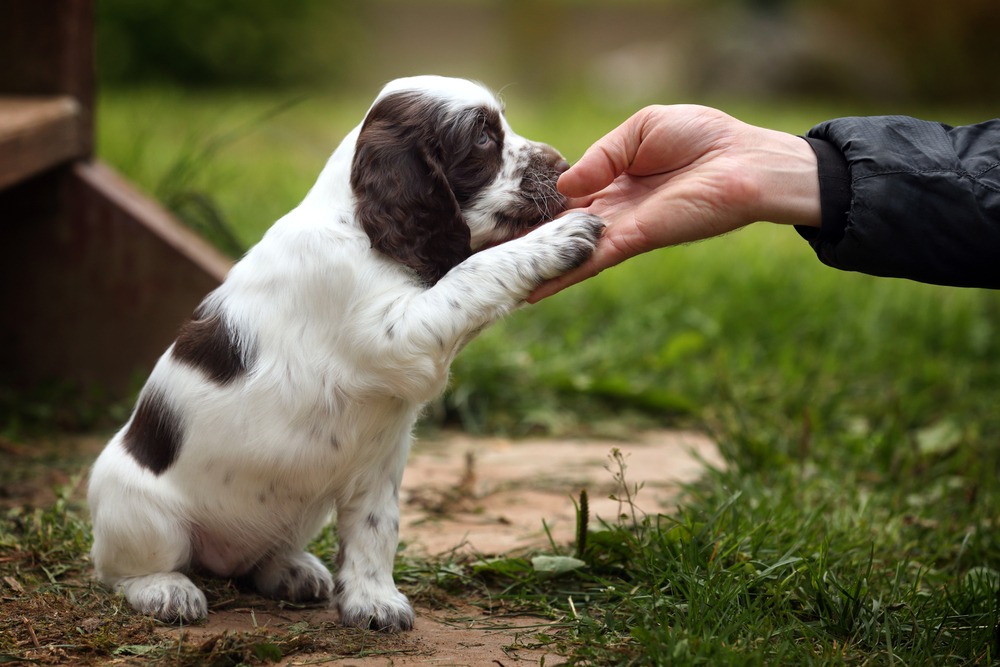I’m not a dog trainer so I’m not writing about dog training from a trainer’s perspective – I’m just a dog friendly advocate. This is a follow-up to last week’s blog, From Animal Master to Animal Mentor.
Dr. Dunbar’s TED talk
This TED talk aligns so strongly with my experience and core beliefs that I had to share it. Dr. Dunbar explains so clearly why being the “Animal Master” is less than effective and cruel than training dogs using the behaviors that they already enjoy. There, I said it. Cruel. Because it stifles the possibility of having a relationship with our animal based on mutual respect and love.
What is dog training?
Dr. Dunbar explains how we usually think dog training works:
- We make up rules about how the dog will act without taking the dog’s nature into account. The underlying belief is, “You’re going to act this way, dammit.”
- We’re not going to tell our dog the rules; we’re going to keep them secret.
- Now we can punish our dog for breaking the (secret) rules.
Cute puppies turn into big dogs
As an example, we think puppies are cute when they jump on our leg. We reward them for jumping up by patting them and say, “What a cute puppy!” But we chastise them for the same behavior when they grow up and become that big Bernese Mountain Dog. Dr. Dunbar says their only crime is they grew up and got big. They are only performing a behavior you trained them to do. Is that fair or kind?
Using distractions
Dr. Dunbar uses distractions that worked against traditional training as rewards to support dog friendly training. Distractions include anything the dog likes such as running, sniffing each other, sniffing the ground, belly rubs, chasing a ball or getting a treat. So if the puppy sits when asked, they get a belly rub or a treat. Or they get to sniff something delicious. Now that’s dog friendly dog training. We motivate the dog to do the behavior we want instead of punishing them for not doing what we want.
How training becomes abuse
He takes a deep dive into abuse, which took me by surprise, but he’s right on target. He says dogs, horses and humans end up getting abused because they return to their abuser and ask for forgiveness. They apologize for behaviors that their people didn’t like after being “disciplined,” which looks like abuse from Dr. Dunbar’s perspective.
People friendly people training
Dr. Dunbar points out that this same “my way or the highway” dominating behavior can also shows up in relationships with our partners, kids, and employees— to everyone’s detriment.
He’s on to something deep here. I personally have wrestled with this dominating behavior as a parent. I made a conscious effort to regroup when I saw the effect my behavior had on my kids. And it is just as devastating in other relationships.
He then translates his dog friendly dog training process into something we can use in our people relationships – people friendly people training. Marvelous!
Listen to his TED talk and share your insights !

